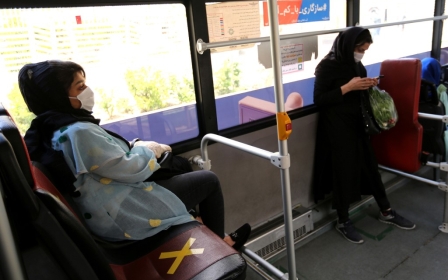Coronavirus: Iran deaths increase by 65 to 6,156 as contamination slows

Iran's death toll from the new coronavirus increased by 65 over the previous 24 hours to reach 6,156 on Saturday, health ministry spokesman Kianush Jahanpur said in a statement on state TV.
The total number of diagnosed cases in Iran, one of the Middle Eastern countries hardest hit by the pandemic, has reached 96,448, up by 802 in the past 24 hours, the lowest daily rate of increase in weeks, he said, adding that 2,787 were in critical condition.
A total of 77,350 people, or 80 percent of those infected, had so far recovered, he said, as reported by Reuters.
Iran, which has been struggling to curb the spread of the disease, is concerned that measures to limit public activities may wreck an economy that has already been battered by US sanctions that were reimposed in 2018. Iranian authorities blame the sanctions for hampering their efforts to combat the disease.
Iranian health officials have been warning of a new wave of the disease if health regulations are not strictly followed.
"If people do not observe health protocols, the disease will certainly return," said Mohammad Mehdi Gouya, director of the health ministry's communicable diseases department.
Iranian President Hassan Rouhani warned last week that the country needs to prepare for a "worst-case" scenario of restrictions lasting until March 2021.
"We should plan production based on a pessimistic view that we might face this virus until the end of the [Iranian] year," Rouhani said in a meeting with heads of Iranian private companies carried live on state TV.
Only 10 percent of the inhabitants of the most affected cities had been infected with the coronavirus, Gouya told the semi-official ISNA news agency.
"This means that 90 percent have not yet been infected with the virus. Therefore, we must not think it's over and leave home and make social visits as we please... There is no other option but to observe proper social distancing," he said.
Deputy health minister Iraj Harirchi said a decision would be made on Sunday on the reopening of schools and Shia holy sites.
Middle East Eye delivers independent and unrivalled coverage and analysis of the Middle East, North Africa and beyond. To learn more about republishing this content and the associated fees, please fill out this form. More about MEE can be found here.





